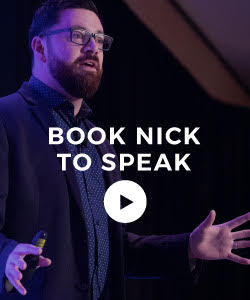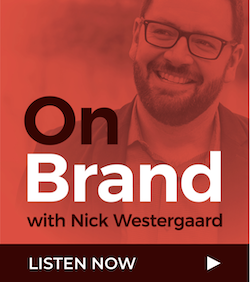We hear it all the time. What’s your brand promise? That’s part of your brand promise. Like many ubiquitous statements in the fast-moving marketing zeitgeist the phrase ‘brand promise’ is bandied about with great ease but what does it really mean, who is it for, and, most importantly why do you need one?
What Is a Brand Promise?
Like a lawyer making an opening statement, sometimes the best place to start is with the definition. A promise is defined as – a declaration that something will or will not be done, given, etc., by one.
Simply put, a brand promise is a core ethos of your brand. A guiding principle or [CLICHE ALERT] core value that defines your brand’s essence. Patrick Hanlon describes it as a brand’s ‘creed’ in Primal Branding. In Brand Against the Machine, John Morgan calls the promise your anchor belief as it grounds you and keeps your brand true. However, another nautical metaphor would be that your brand promise is your rudder as it guides you ahead. Without a rudder you have no direction.
Who Is a Brand Promise For?
I was surprised to learn in my scan of the dictionary that none of the definitions of ‘promise’ had anything to do with a pact being made between parties. That’s always how I think of a promise. A promise to your kids to stop for ice cream if they’re good and the like. It’s relevant here as many kick the tires of the brand promise concept and wonder, who’s this for anyway?
This is a valuable question as it has a couple of different answers. Many commonly think of a brand promise as something external — just another name for a slogan or tagline (sometime let’s talk about what all of those labels mean!). This sells the brand promise a bit short. While it certainly can be an outward-facing message like “Just Do It” the promise can also be an internal mantra. A perfect example of this is Alan Mulally’s “One Ford” strategy he used to right the ship (nautical metaphors abound!). This simple phrase informed product development, brand strategy, distribution, and more by making it clear that a distinct focus on Ford would drive business across the board.
A brand promise can also be both internal and external such as Apple’s infamous “Think Different” campaign, anchored by The Crazy Ones TV ad. Like “One Ford,” this promise was introduced at a shaky time for the now venerable brand. With the company on life support, Steve Jobs needed something to buy time with weary fans until the next wave of new product knocked their socks off. And while this was a large traditional media campaign, it celebrated fan culture and made a promise visible to both fans and employees alike. In fact, many of Apple’s most famous campaigns like 1984 have been used to galvanize and harness internal morale as well.
Not as 2-dimensional, transparent, or temporary as a tagline or slogan yet more actionable than a cumbersome mission statement or (worse) a list of core values, a good brand promise takes the best of both concepts. Catchy and easy to remember like a tagline while carrying meaning that can be applied across an organization like a mission.
Sounds like an easy thing to think up, right?
Do You Really Need a Brand Promise?
After walking through many of these stories the answer should be obvious. Without a rudder you can’t steer a ship or a brand very far. Don’t have one? Then you should find the examples above especially uplifting. While both brands have since recovered, there was a time when many had epitaphs on file for both Ford and Apple. Both anecdotes show that if you find your ship rudderless it’s not too late to drop one in the water and set forth.
Do you have a brand promise? How does it guide your organization either internally or externally? Please share in the comments below (nautical allusions not required but certainly preferred).









